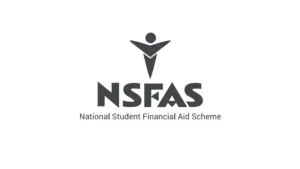Unemployment Insurance Fund (UIF) benefits can be a crucial lifeline during periods of unemployment. The key is to use these benefits wisely to maintain financial stability and prepare for future opportunities.
This article will provide a comprehensive guide on smart financial planning with your UIF benefits.
Understanding UIF Benefits
The UIF is a South African government initiative aimed at providing temporary relief to workers who have lost their jobs or are unable to work due to maternity, illness, or adoption leave. Contributions to the UIF are made monthly by both employers and employees, ensuring a safety net for workers.
Claiming Your UIF Benefits
Before diving into financial planning, it’s essential to understand how to claim your UIF benefits:
- Registering for UIF: Ensure you are registered for UIF through your employer. If not, you can register at your nearest Department of Labour office.
- Submitting Claims: Claims can be submitted online through the UIF portal or at a Labour Centre. Required documents include a valid ID, a completed UI-2.8 form (banking details), and a UI-19 form from your employer.
- Waiting Period: There is usually a waiting period before you receive your first payment, so plan your finances accordingly.
Related: Checking Your UIF Status via Phone in 2024
Smart Financial Planning Tips
1. Create a Budget
Creating a budget is the first step to managing your UIF benefits effectively. Follow these steps:
- List Your Income: Calculate your monthly UIF benefit amount.
- Track Your Expenses: Note down all essential monthly expenses, such as rent, utilities, food, and transportation.
- Prioritize Needs Over Wants: Ensure essential needs are covered first. Avoid unnecessary expenses.
2. Build an Emergency Fund
While UIF benefits provide temporary relief, it’s crucial to save a portion for unexpected expenses. Aim to set aside a small amount each month into an emergency fund.
3. Manage Debt Wisely
If you have existing debts, prioritize paying them off. Consider these strategies:
- Negotiate Payment Terms: Contact creditors to negotiate reduced payments or extended deadlines.
- Avoid High-Interest Loans: Stay away from loans with high-interest rates that can worsen your financial situation.
4. Seek Additional Income Sources
Consider part-time or freelance work to supplement your UIF benefits. Look for opportunities in:
- Local Community: Offer services like babysitting, tutoring, or gardening.
- Online Platforms: Explore online job platforms for remote work opportunities.
5. Enhance Your Skills
Use this period to invest in your education and skills. Many online courses are free or affordable and can improve your job prospects. Websites like Coursera, Udemy, and Alison offer a variety of courses.
6. Plan for the Future
Prepare for life after UIF benefits by:
- Networking: Attend local job fairs, join professional groups, and connect with potential employers.
- Updating Your CV: Ensure your CV is up-to-date and highlights your skills and experiences.
Read More: Does UIF Expire? Understanding the Unemployment Safety Net
Practical Budgeting Example
Let’s look at a practical example of how to budget UIF benefits:
Monthly UIF Benefit: R3,500
Expenses:
- Rent: R1,000
- Utilities: R500
- Food: R1,000
- Transportation: R300
- Debt Repayment: R300
- Savings (Emergency Fund): R200
- Miscellaneous: R200
By prioritizing essential expenses and setting aside a small amount for savings, you can manage your UIF benefits effectively.
Tips for Stretching Your Benefits
- Buy in Bulk: Purchase non-perishable items in bulk to save money.
- Use Public Transport: Opt for public transportation instead of taxis to reduce costs.
- Cook at Home: Preparing meals at home is cheaper and healthier than eating out.
Smart financial planning with your UIF benefits involves budgeting wisely, managing debt, seeking additional income sources, enhancing your skills, and planning for the future. By following these tips, you can make the most of your UIF benefits and prepare for a more stable financial future.










